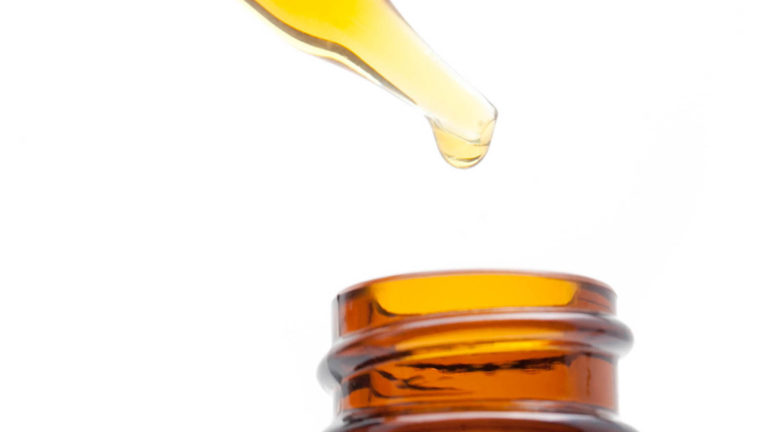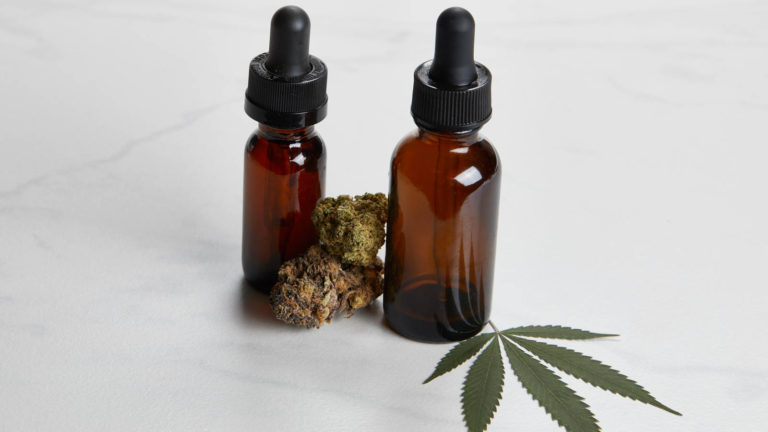Yes, cannabidiol (CBD) oil is legal in Oregon, a pioneer when it comes to cannabis legalization.
Oregonians legalized medical cannabis in 1998 with the passing of Measure 67, the Oregon Medical Marijuana Act. The legalization of recreational cannabis followed in 2014, with the approval of Measure 91, the Control, Regulation, and Taxation of Marijuana and Industrial Hemp Act.
As one of the most cannabis-friendly states in the nation, the Oregon cannabis rules for CBD are equally progressive. But as CBD — and the production of products including CBD oil — has become more widespread, states are putting stricter regulations on CBD.
What is CBD?
CBD stands for cannabidiol, a cannabinoid found in the cannabis plant. Unlike THC, CBD is non-intoxicating — so consumption of CBD won't produce the same “high” as flower, edibles, or other cannabis products containing THC.
 Photo by: Gina Coleman/Weedmaps
Photo by: Gina Coleman/WeedmapsImage lightbox

The second-most-abundant cannabinoid found in the plant after THC, CBD has a host of therapeutic benefits, including analgesic, anti-anxiety, anti-inflammatory, and seizure-suppressing properties. CBD can be sourced from marijuana or hemp plants.
Why is CBD sometimes illegal?
Hemp strains don't produce enough THC to cause intoxication, yet all cannabis — including hemp — was considered illegal under the 1970 Federal Controlled Substances Act. Under this law, cannabis was categorized as a Schedule 1 drug, defined as a substance with a high abuse potential, no accepted medical use, and a likelihood for addiction.
The 2018 Farm Bill legalized hemp cultivation and made the plant an agricultural commodity. It also removed some forms of cannabis from the Schedule 1 category by defining a legal threshold between hemp and marijuana. Hemp is now defined as cannabis that contains less than 0.3% THC by weight and is no longer a Schedule 1 substance. Marijuana is now defined as cannabis that contains more than 0.3% THC by weight. However, marijuana-derived CBD is still considered a Schedule 1 substance — and is still federally illegal, even though states have ruled differently.
 Photo by: Gina Coleman/Weedmaps
Photo by: Gina Coleman/WeedmapsImage lightbox

Hemp must still be produced and sold under the regulations outlined under the bill. To date, the U.S. Department of Agriculture (USDA) has yet to create these regulations.
While the Farm Bill did preserve certain regulations surrounding CBD — including the power of the Food and Drug Administration (FDA) to regulate CBD's labeling, therapeutic claims, and its use as a food additive. Under current FDA regulations, even hemp-derived CBD may not be added to food or beverages or marketed as a dietary supplement. The FDA has begun the process of reevaluating that stance, but the agency hasn't provided definitive answers about how it will revise the current regulations. The FDA has been strict about CBD health claims and content that could be construed as medical advice. In July 2019, the FDA issued a warning letter to CBD producer Curaleaf for making unproven health claims.. Three months earlier, the FDA warned three other CBD makers for making similar health claims.
Current federal laws still highly regulate the production and sale of hemp and its cannabinoids, including CBD. In addition, the Farm Bill also allows states to regulate or prohibit CBD cultivation and commerce. In addition, states also may attempt to regulate CBD beverage, food, dietary supplement, and cosmetic products independently of the FDA finalizing its regulations around such products.
Currently, Oregon is theWest Coast state where CBD in food and beverages can be purchased from retailers, including pharmacies and grocery stores.
Oregon CBD laws
Under Oregon state laws, cannabis — including CBD — has been legal recreationally and medically since 2014. That means that in Oregon, both hemp-derived and marijuana-derived CBD were already legal at the state level prior to the passing of the 2018 Farm Bill. However, in some aspects, it follows federal law.
Oregon currently follows the same CBD classification regulations as outlined by the 2018 Farm Bill. Under the state's current hemp program, businesses do not need to apply for any type of licensure or registration to sell CBD products, as long as they meet federal requirements, contain less than 0.3% THC, and aren't advertised as a dietary supplement.
There are no restrictions on the sale of CBD products to individuals 21 and older, except for inhalant delivery systems and their components.
Licensing requirements for CBD
Currently, hemp-derived CBD products are overseen and regulated by the Oregon Department of Agriculture (ODA).
While there are no requirements surrounding the sale of hemp-derived CBD products in Oregon, there are regulations around testing, labeling, and cultivation that vary for hemp and marijuana products.
Oregon's packaging and labeling restrictions require that if products contain only industrial hemp intended for human consumption or use, the label must include the department's special hemp symbol, which is a white cannabis leaf and the word hemp inside a rectangle with a blue background. If the products contain any marijuana as defined by the Oregon Liquor Control Commission (OLCC), the state's cannabis regulatory body, they must bear the universal symbol, a rectangle with a white cannabis leaf and an exclamation point inside a rectangle with a red background.
- The labels on CBD products must include this warning: “This product is derived from hemp and could contain THC. Keep out of reach of children.”
- Manufacturers also must also include the following FDA statement: “This product is not approved by the FDA to treat, cure, or prevent any disease.”
- If the item is a hemp extract, concentrate, topical, or a hemp product other than an edible, tincture, or capsule, the label needs to contain the warning, “Do Not Eat” in bold, all-capital letters.
- Current testing requirements state that extracts or concentrates for retail must be tested for pesticides, solvents (if used), and THC and CBD content.
- Cannabinoid hemp products meant for human consumption must be tested for THC and CBD content.
- Under current Oregon laws, there are no minimums or maximums for growing hemp after a grower's application is approved. Oregon residents without an approved registration may grow up to four cannabis plants — including hemp.
Oregon CBD possession limits
There are no possession limits for hemp-derived CBD in the state of Oregon. For CBD that is derived from marijuana, possession limits vary by product type. The limits are 16 ounces (456grams) of marijuana in a solid product form, and 72 ounces (2,052grams) of marijuana in liquid product form, and 5 grams of concentrates.
 Photo by: Gina Coleman/Weedmaps
Photo by: Gina Coleman/WeedmapsImage lightbox

Where to buy CBD in Oregon
Because hemp-derived CBD products including CBD oil are now federally legal, consumers have a wide variety of options online or in retail stores for purchasing CBD in Oregon.
How to read CBD labels and packaging
When purchasing CBD oil and other products, make sure the label clearly defines the contents. Most reputable CBD producers will typically include the following information on their CBD product labels:
- The amount of active CBD per serving.
- Supplement Fact panel, including other ingredients.
- Net weight.
- Manufacturer or distributor name.
- Suggested use.
- Full spectrum, broad spectrum, or isolate
- Batch or date code.
- Oregon's hemp and/or universal symbol.

